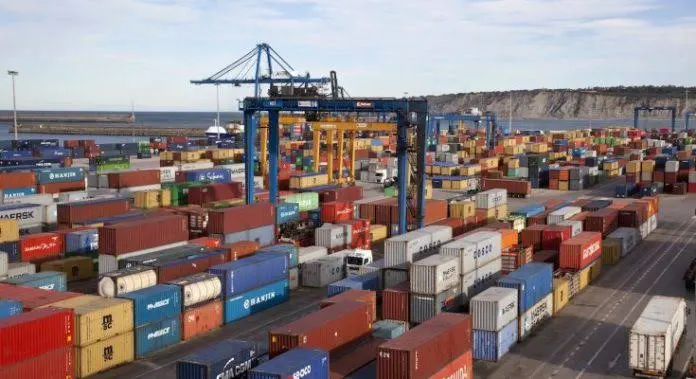Nigeria imports $14.5bn worth of Food, fuel, others in six months
by Ebor Cletus Ralph Jr

Nigeria’s foreign exchange expenditures for food, petrol, and other imports increased by 45% in the first half of this year compared to the same period last year due to persistent dollar shortages.
According to data on sectoral utilisation for transactions valid for foreign exchange provided by the Central Bank of Nigeria (CBN), the country spent $14.5 billion on imports during the six-month period, up from $10.04 billion in H1 2021.
The majority of the foreign exchange used to finance imports came from the industrial sector, which was followed by the manufactured goods, food, oil, and education services sectors.
According to CBN data, the largest economy in Africa had a decline in its external reserves from $40.52 billion at the end of last year to $38.92 billion on August 9, 2022.
The country depends heavily on imports for almost everything, and this has continued to put pressure on the naira exchange rate as importers need forex, especially the United States dollar, to bring goods into the country.
The forex utilised for fuel imports increased by 35.14 per cent to $679.47 million in H1 2022 compared to a year earlier, according to the central bank.
Nigeria relies wholly on imports to meet its fuel needs as its loss-making refineries have been shut down since 2020 for rehabilitation.
The apex bank has adopted some capital controls in recent years to stabilise the naira and conserve the country’s foreign reserves.
In June 2015, the CBN excluded importers of 41 goods and services, including some food products, from accessing forex to conserve the external reserves and encourage local production of those items.
In December 2018, the bank included fertiliser on the list of 41 items classified as ‘not valid for foreign exchange in the Nigerian forex market.
The other items include rice, meat and processed meat products, chickens, eggs, tomatoes and tomato paste, and vegetables and processed vegetable products.
The central bank said in July 2019 that it would restrict the sale of forex for the importation of milk from the Nigerian forex market.
In September 2020, President Muhammadu Buhari gave a directive to the CBN to stop issuing forex for food and fertiliser imports, saying that firms that were bent on importing food should source their forex elsewhere.


